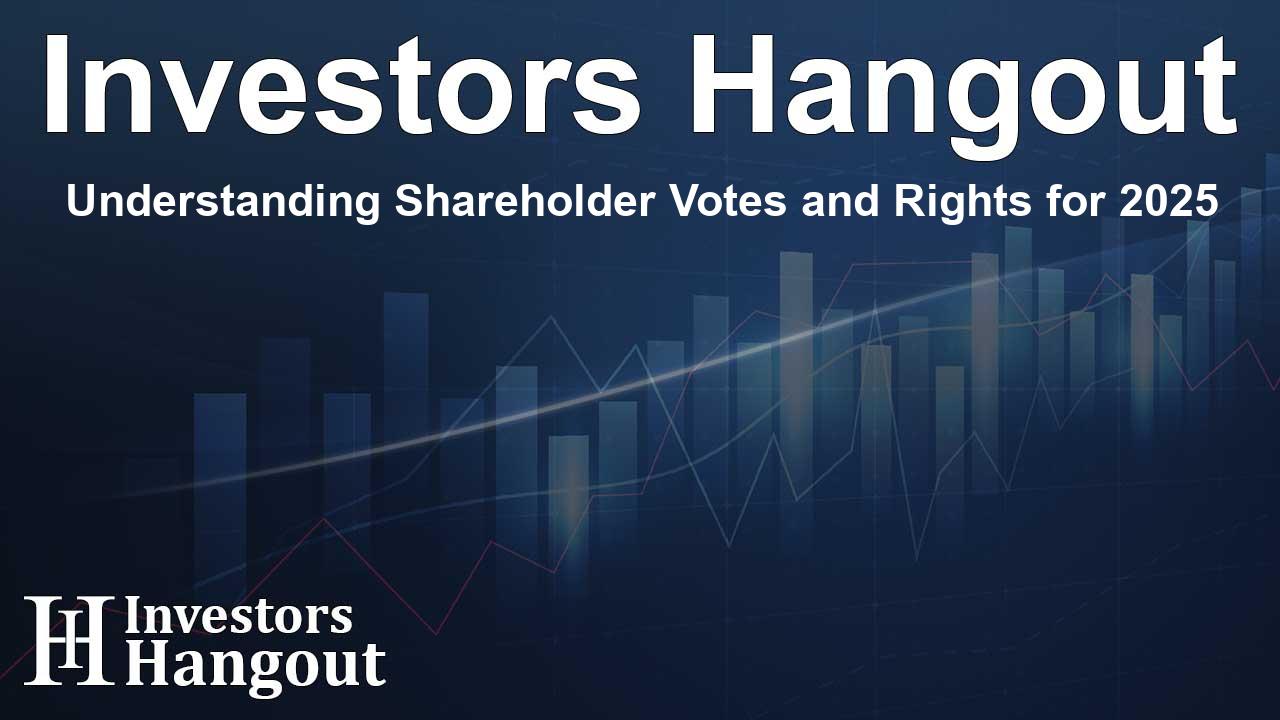Understanding Shareholder Votes and Rights for 2025

Understanding Shareholder Votes and Rights for 2025
As we look into the realm of shareholder voting rights and total shares, it's crucial to grasp the implications for investors and company dynamics. The information detailed here revolves around the total number of shares and accompanying voting rights as prescribed by important regulations.
Key Regulations Impacting Shareholder Votes
The framework for understanding these shares and their respective voting rights stems from the French Commercial Code. One prominent aspect is the twin voting rights bestowed upon shares that are fully paid-up and have been in the possession of a single recorded shareholder for a minimum period. This rule is vital for understanding how voting power can be amplified through long-term holding strategies.
Eligibility for Double Voting Rights
From the stipulations effective since April 3, 2016, shareholders holding their shares in registered form with a singular ownership can witness an increase in their voting influence. This legislation grants double voting rights automatically, thereby encouraging long-term investment and stability among shareholders.
Current Status of Shares and Voting Rights
As of the latest disclosure, the landscape of shares reads as follows:
Total Number of Shares
The current count of shares stands at a staggering 2,660,056,599. This figure showcases the mass of ownership and invites a closer examination of shareholder influence in pertinent decisions.
Number of Treasury Shares
There are approximately 2,835,000 shares held in treasury that do not carry any voting rights. These treasury shares, while part of the overall count, do not contribute to the voting power in shareholder meetings.
Theoretical and Exercisable Voting Rights
Calculating the theoretical number of voting rights reveals a total of up to 3,172,669,760, but when factoring in shares without voting rights, the number of voting rights that can be practically exercised amounts to 3,169,834,760. This discrepancy emphasizes the importance of understanding the nuance between active and non-active shares.
Implications for Shareholders
For shareholders, understanding these figures is crucial. Not only do they reflect the current state of the company, but they also indicate how decisions regarding future dividends or asset sales will be influenced by shareholder votes.
Conclusion
The total number of shares and the intricacies of voting rights not only shape the governance structures of companies but also create meaningful dialogue about investor engagement. As stakeholders analyze these elements, it becomes evident that an informed investor can leverage their voting power, thereby making a significant impact on the directions their companies may take.
Frequently Asked Questions
What is the significance of voting rights for shareholders?
Voting rights are crucial for shareholders as they determine the influence an investor has on key company decisions, including board appointments and dividend policies.
How does one qualify for double voting rights?
To qualify for double voting rights, shares must be fully paid, held in registered form, and owned by a single shareholder for at least two years.
What percentage of shares are held as treasury shares?
Currently, about 2,835,000 treasury shares are held that do not carry voting rights, a small fraction of the total shares in circulation.
How are theoretical voting rights calculated?
Theoretical voting rights are calculated based on the total number of shares eligible for voting, including those without specific voting rights.
Why should shareholders pay attention to these numbers?
Shareholders should monitor these figures closely as they directly impact their level of influence in company operations and governance.
About The Author
Contact Evelyn Baker privately here. Or send an email with ATTN: Evelyn Baker as the subject to contact@investorshangout.com.
About Investors Hangout
Investors Hangout is a leading online stock forum for financial discussion and learning, offering a wide range of free tools and resources. It draws in traders of all levels, who exchange market knowledge, investigate trading tactics, and keep an eye on industry developments in real time. Featuring financial articles, stock message boards, quotes, charts, company profiles, and live news updates. Through cooperative learning and a wealth of informational resources, it helps users from novices creating their first portfolios to experts honing their techniques. Join Investors Hangout today: https://investorshangout.com/
The content of this article is based on factual, publicly available information and does not represent legal, financial, or investment advice. Investors Hangout does not offer financial advice, and the author is not a licensed financial advisor. Consult a qualified advisor before making any financial or investment decisions based on this article. This article should not be considered advice to purchase, sell, or hold any securities or other investments. If any of the material provided here is inaccurate, please contact us for corrections.
